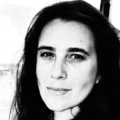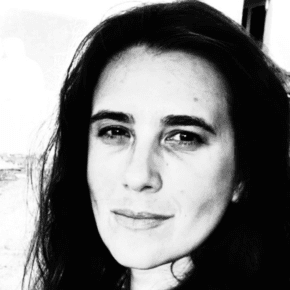In the spring of 2017, bed-bound with a broken knee and determinate to make the most of the seemingly infinite nine weeks I was to spend at home, I dusted off the manuscript I had started a decade earlier and set out to finish it. I wrote in bed and on the sofa, galvanised by my new project, certain that the perfect novel was at my fingertips. But as I hit 30,000 words, I froze. A writer friend suggested revising the plot, but the issue ran deeper.
It turned out the problem was the language I was writing in, my native Italian. Despite it being my mother tongue and the language of my education and of my early journalistic career, I cringed every time I reread my work. Writing came easily, too easily. I rambled on the page as I did with my friends on the phone, but the words were empty. There was a frightening distance between my emotions and their expression on the page.
Fifteen years had passed since I left Italy. I now lived in Brussels with my French-speaking husband and our trilingual children. We spoke English with our international friends. My freelance writing was primarily in English and occasionally in French. I had been reading in English since my late teens, when I found a copy of The Picture of Dorian Grey at a friend’s house and realised how the translation I’d read in school was only a pale approximation of the original. I had become an orphan of my mother tongue.
Later that year I started keeping a journal in English, recording thoughts and feelings I could no longer articulate in Italian. Initially, the writing felt frustratingly slow.
I wrestled with words, which sometimes would only come to me in French, or in Italian. A single entry could take half a morning, but the process was gratifying.
I became a more deliberate, thoughtful writer in English, meticulously crafting every sentence to match the thoughts in my head.
I signed up for a novel writing course with Faber Academy, relishing the camaraderie and discussions with my course mates. Yet, I sometimes felt that I lagged. I envied their mastery of the language and questioned my choice. I read voraciously, copying entire pages from novels I admired to internalize structure, flow, and naturalness.
On every course I took that year, there was someone remarking that my English was really good for a foreigner. I knew they meant well, but it stung.
I was a foreigner, yes, but I was determined to claim English as my own. I wondered if, someday, people would forget it wasn’t my first language.
My debut novel didn’t sell on submission. I received encouraging rejections, and praise for my plot’s originality and worldly characters, but not the love my story needed. I knew this was common in the industry, but a nagging voice I’d managed to suppress until then whispered in my ear, Your English isn’t good enough. Who did you think you were, writing in a language that isn’t yours?
I persevered. I kept writing and reading exclusively in English, methodically distancing myself from any other language. Short fiction felt less intimidating, and my inner critic retreated to the depths of my mind. I regained my confidence.
Friends and family remained unconvinced, though. Former colleagues who had read my Italian articles questioned why I was creating a different persona in English. They wondered why my Italian self wasn’t sufficient.
The truth was, I had spent most of my adult life abroad, becoming a different person than the young woman who had left Italy in hope of an adventure, thinking she’d return after a couple of years. I wanted to engage in the broader conversation I had followed for almost two decades, and English was the medium. I wouldn’t write in any other language.
As I grappled with doubts about my right to write in English, I discovered stories of translingual writers who had faced similar anxieties, questions of identity, legitimacy, and credibility. They resonated with me, offering both consolation and inspiration.
Jhumpa Lahiri was the only contemporary writer I knew who had successfully switched languages, crafting exquisite (and internationally praised) work both in English and in Italian. Her Italian possessed a crystalline quality rare in contemporary Italian writers. The shift in language gave her full control over the form.
As I delved into the works of translingual writers, seeking reassurance that my journey was possible, I stumbled upon an article by Egyptian-American novelist Rajia Hassib on the LitHub website. She recounted her experience arriving in the U.S. as an immigrant and holding a novel by Nabokov in a bookshop, wondering whether she, too, would one day write in English. Her article deeply touched me.
I realised it was time to extend the conversation about languages to as many people as possible.
In a few weeks, I set up a podcast, and I named it Chosen Tongue.
I reached out to translingual authors, realising they had all wrestled with questions of identity and creative expression. Their journeys were diverse, reflecting the intricate relationship between language and the self. Rajia Hassib (episode 1) initially feared writing in English would be a betrayal of her origins; Elvis Bego (ep. 2) chose English over his native Bosnian and his adoptive Danish because it felt like a safe haven, where he could be himself, free from the shadow of his war-torn childhood and exile. Nabeela Ahmed (ep.3) writes in three languages, but can only speak about love in English; André Aciman (ep.4), despite having lived in New York since his 20s, still takes notes in French and Italian. Melissa Llanes Brownlee (ep.5) is an orphan of her native Hawaiian and only realised as an adult how English was both her first language and that of an oppressor; Francesco Dimitri (ep.6) went to London in search of an adventure and he’s now about to publish his fourth book in English. Mileva Anastasiadou (ep. 7), a writer from Athens, was encouraged to switch to English by her Greek publisher while Mathieu Cailler (ep.8), a French-American writer in Los Angeles, has always felt a Frenchman in America and an American in France and enjoys the freedom of writing in Spanish.
Eight writers, eight journeys of straddling languages and cultures. The second season of Chosen Tongue, scheduled for next winter, promises to expand this conversation.
A few weeks ago, during a reading event in Brussels, a young woman approached me, saying she dreamt of writing in English but was uncertain if she had the right to do so. The first episode of Chosen Tongue had just aired and my heart swell. Of course you have the right, I said to her. And I hope everyone else thinks that after listening to the podcast.
You can listen to the first season of Chosen Tongue here.






















